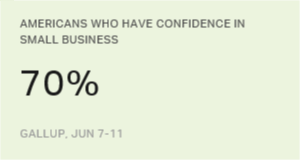PRINCETON, NJ -- Gallup Poll Daily tracking shows that 55% of Americans rate the U.S. economy as "poor," up 15 points since the beginning of the current Wall Street financial crisis, and the highest such rating for the year so far.
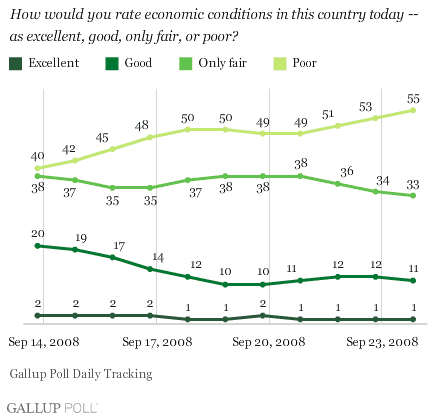
These results are based on interviews conducted Monday through Wednesday, and reflect a continuing deterioration in Americans' ratings of current economic conditions. The current "poor" rating is up two percentage points from Wednesday. Prior to this week, the previous high point in this poor rating -- 52% -- was measured just after the Fourth of July holiday this summer, when gas prices were moving to new highs.
Eighty-eight percent of Americans say the economy is getting worse, roughly where it has been for the last three reports, and still slightly below the 90% getting worse number recorded in mid-July.
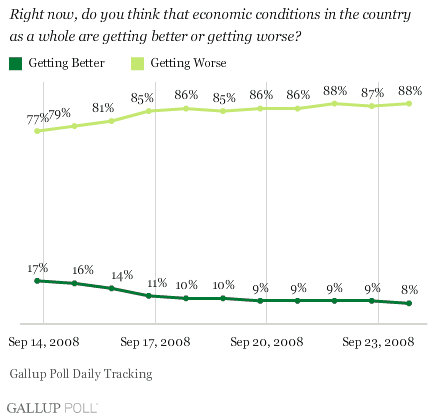
Gallup calculates an overall consumer confidence measure based on a combination of these two questions. Americans classified as "positive" rate current economic conditions "excellent" or "good" and think the economy is getting better or staying the same. Americans classified as "negative" rate current economic conditions "only fair" or "poor" and think the economy is getting worse or staying the same.
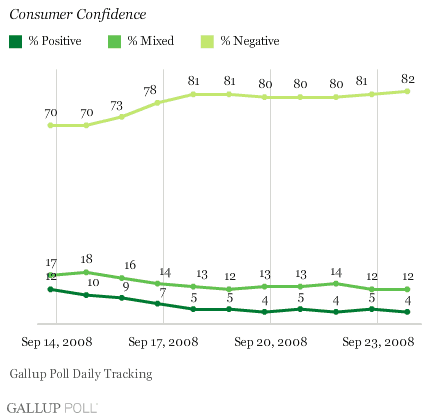
At this point 82% of Americans can be classified as having a negative outlook on the economy, with only 4% positive and 12% mixed. The 82% negative rating is the highest since the current financial crisis began, although still below the year's most negative reading of 83% recorded in July.
On a more personal level, the Monday through Wednesday average shows that 43% of Americans say that they worried about money "yesterday", a sharp jump from the previous three days' reports, and roughly in line with there it was in the middle of last week, before news reports that the government would attempt a comprehensive plan to deal with the bad investments threatening Wall Street firms.
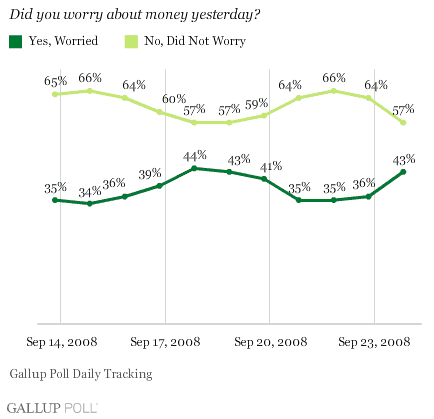
Gallup's continual tracking of consumer confidence shows that Americans react quickly to economic events. If the stock market ends Thursday with a significant increase, and if Congress passes (or is perceived as being near passing) the massive bailout bill it is now debating, these numbers could improve. It is also possible, of course, that confidence in the economy will continue to descend to new record lows in the days ahead. -- Frank Newport
Survey Methods
Results are based on telephone interviews with 1,520 national adults, aged 18 and older, conducted Sept. 22-24, 2008, as part of Gallup's daily tracking survey. For results based on the total sample of national adults, one can say with 95% confidence that the maximum margin of sampling error is ±3 percentage points.
Interviews are conducted with respondents on land-line telephones (for respondents with a landline telephone) and cellular phones (for respondents who are cell phone only).
In addition to sampling error, question wording and practical difficulties in conducting surveys can introduce error or bias into the findings of public opinion polls.
To provide feedback or suggestions about how to improve Gallup.com, please e-mail feedback@gallup.com.
